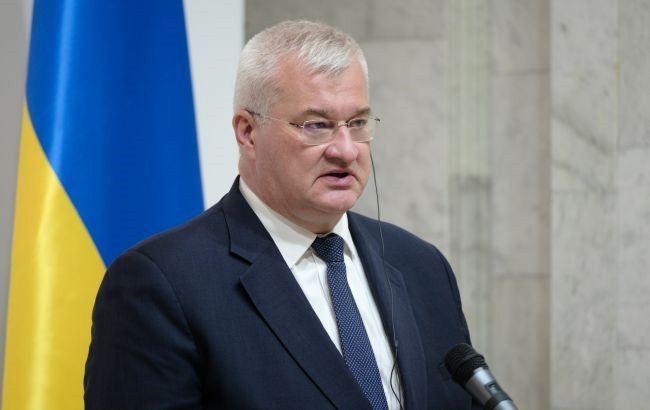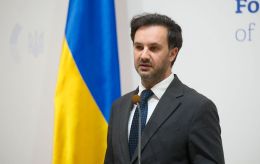Ukraine urges UN to limit veto power in cases of genocide and war crimes
 Andrii Sybiha, Minister of Foreign Affairs of Ukraine (Vitalii Nosach, RBC-Ukraine)
Andrii Sybiha, Minister of Foreign Affairs of Ukraine (Vitalii Nosach, RBC-Ukraine)
On the 80th anniversary of the signing of the UN Charter, Ukrainian Foreign Minister Andrii Sybiha called on the international community not to limit itself to declarations, but to defend international law through concrete action.
"80 years ago, the UN Charter was signed to ensure peace and dignity for all. To ensure that no nation would suffer unprovoked aggression," the Foreign Minister reminded.
He emphasized that Ukraine was among the founding members of the United Nations and is now defending its core principles on the front lines — through resistance, diplomacy, and the determination of its people.
Sybiha emphasized that Russia's war is not just an attack on Ukraine, but a direct assault on the very principles upon which the international security system is built.
"Ukraine's border is the border of international law," he stated.
Sybiha stressed that the UN Charter has not been destroyed — but it is being betrayed. Above all, by Russia, which continues to hold a permanent seat on the UN Security Council despite gross violations of international law.
"On this anniversary, we do not celebrate. We urge all peace-loving UN member states to defend the Charter not with words, but with actions," the minister said.
As a founding member of the United Nations, Ukraine advocates for UN reform. One of the key changes should be the limitation of the veto power in cases of aggression, genocide, war crimes, and crimes against humanity.
"International law must be law, not a declaration," Sybiha concluded.
The UN Charter
The UN Charter is an international document of the United Nations, signed on June 26, 1945, in San Francisco and in force since October 24 of the same year. Its purpose is to ensure international peace and security, foster friendly relations among states, uphold human rights, and promote respect for international law.
The Charter enshrines key principles, including the sovereign equality of states, the peaceful settlement of disputes, the prohibition of the use of force in international relations, and non-interference in the internal affairs of countries. Ukraine is one of the founding members of the UN and took part in the signing of the Charter. It remains the foundation of the modern international legal order.
As previously reported by RBC-Ukraine, the UN Charter does not prohibit a country defending itself from armed aggression from "projecting force" into the aggressor's territory, provided it complies with international law.

